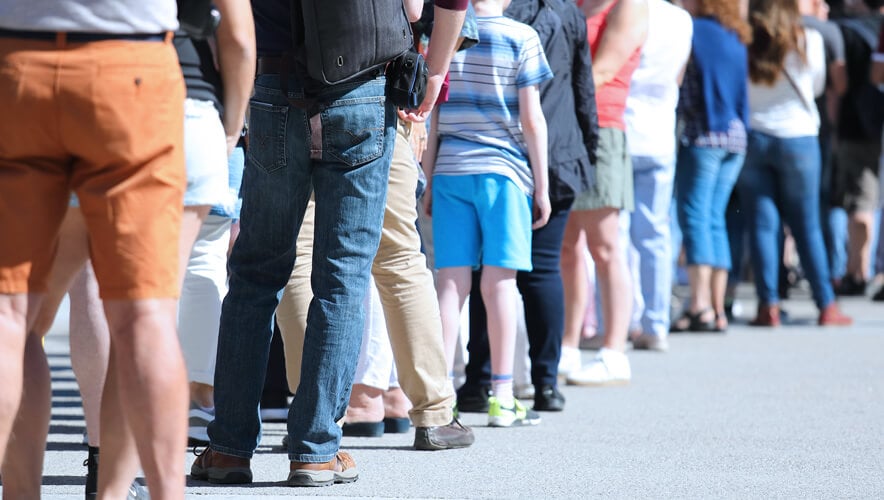Crowd Avoidance: COVID-19 Spurs Interest in Smoother Security Lines
In the face of the COVID-19 pandemic and perceptions of increased social violence, Americans expect schools, workplaces, and ticketed venues to ensure social distancing, from the perimeter in. If security screening lines are too crowded, many said they would abandon plans to attend an event or enter a facility, according to a recent poll from touchless screening systems company Evolv Technology, conducted online by The Harris Poll.
The poll surveyed 1,500 U.S. adults with a personal stake in security screening: consumers who attended ticketed events in 2019, parents of school-aged children, and workers at large factories, warehouse, and distribution centers.
All in all, 83 percent of surveyed adults said that COVID-19 is the top issue facing the United States, but concerns around social violence persist. More than 80 percent of survey respondents said they were very or somewhat concerned about mass shootings, street crime, or protest-related civil unrest. While physical security and screening measures were deemed to have a reassuring effect, measures that do not enforce hygienic or social distancing measures were likely to backfire, the survey found.
"The COVID-19 virus is 'weaponizing' people in a way that the world has never seen before," says Peter George, CEO at Evolv. "Crowded places and simple human contact multiply the dangers and people are paying far more attention to how venues and workplaces are handling the new normal of the pandemic and weighing the risk versus rewards of venturing in."
According to the poll, nearly seven in 10 (69 percent) Americans value the general sense of safety that physical security measures provide, and over half (54 percent) believe there is deterrent value in those measures.
Nearly eight in 10 (79 percent) think traditional metal detectors create long lines, and two-thirds (67 percent) think metal detectors create crowds that violate social distancing guidelines, the poll found. A majority also believe that metal detectors require belongings to be touched by a security guard (70 percent), require pat down searches (52 percent), generate too many false positives (58 percent), and force families to separate during screening (57 percent). Some of these findings may signal a need for education and addressing perceptions around screening measures, as well as considering new technologies.
"For venues and organizations, being well prepared and organized is critical in reassuring patrons and employees that the venue is committed to providing the utmost security and safety protocols," George says. "If patrons see long lines or crowds as a result of manual people screening for weapons and temperature checks, the likelihood of them venturing in gets diminished given the risks."
